Dazzling future of M&A activities
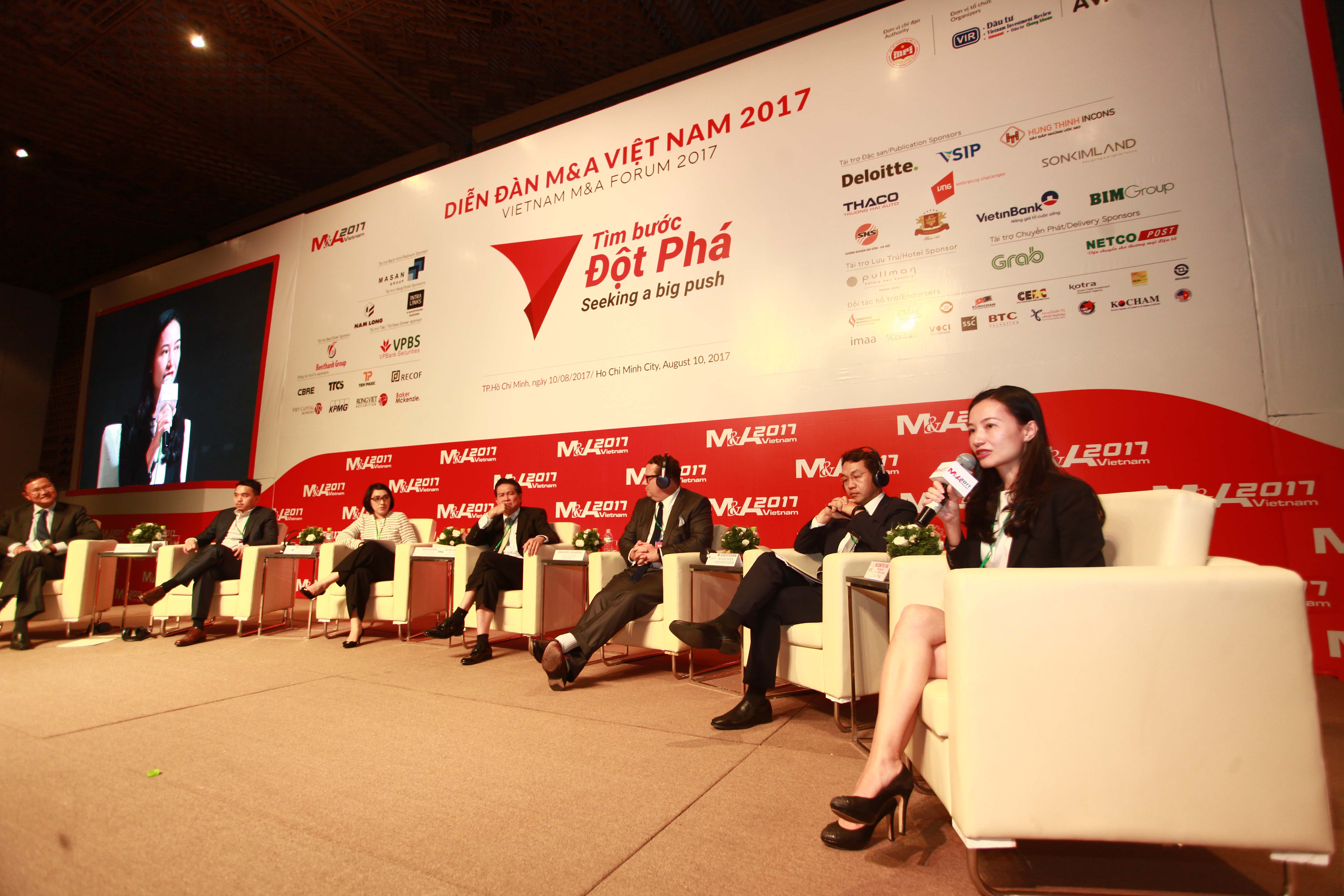
Eric Solberg, CEO from EXS Capital was very positive when predicting that M&A activities in Vietnam would double or triple in the next five to ten years.
Coming from Locus Capital Partner, managing partner Jacob Hoyeon Won predicted that consumer retail will be the most attractive, especially for Korean investors.
Dang Van Thanh, chairman of TTC Group, and Danny Le, head of business development from Masan Group, stressed that Vietnam continues to be a capital destination of foreign investment, especially in agriculture and finance.
In the real estate sector, Duong Thuy Dung, senior director, head of professional services from CBRE Vietnam, predicted that in 2017-2018, three segments which will attract most M&A will include houses for sale in Hanoi and Ho Chi Minh City, hotels and condotels in coastal provinces, and industrial properties stretching from the north to the south of the country.
The optimistic forecasts were also shared by Nguyen My Phuong, CEO of Tien Phuoc Group, with more deals and increased value.
Experts also shared their experiences of success and failure of the notable deals in 2016-2017 from the perspective of independent experts as well as insiders.
Challenges and opportunities in M&A activities, negotiating and signing M&A contracts, the role of advisory firms in deals, valuation, finance, and arranging capital for deals were the main issues raised in this session.
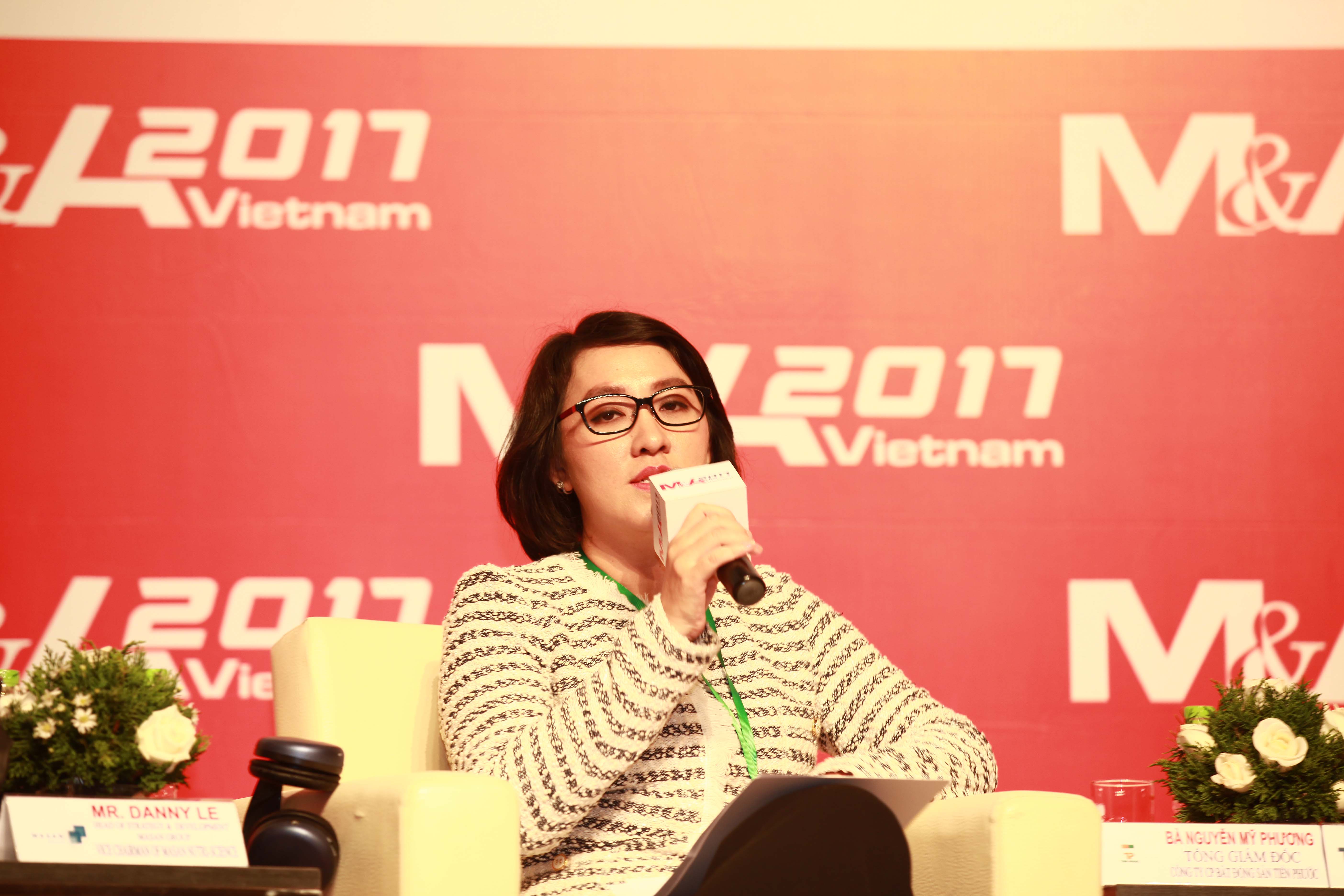 |
| Nguyen My Phuong - CEO of Tien Phuoc Group One of the most significant issues for Tien Phuoc is that we choose very carefully our partners and continuously cooperate with them after the first deal. The cooperation between Tien Phuoc and Keppel Land is a typical example for this continuous cooperation. At the beginning of our business, we needed experience, then in the following stage, we got more familiar with our partners and also understood more about our advantages. Apart from this, we need the flexibility of a private company. Going from one, we now have more than three joint ventures. We have been sharing our values and long-term commitment. We have achieved transparency and made our partners believe in our prestige. Our experience is how to harmonise benefits among partners. We think that when two sides sit in the same boat, we have a basis for win-win benefit. |
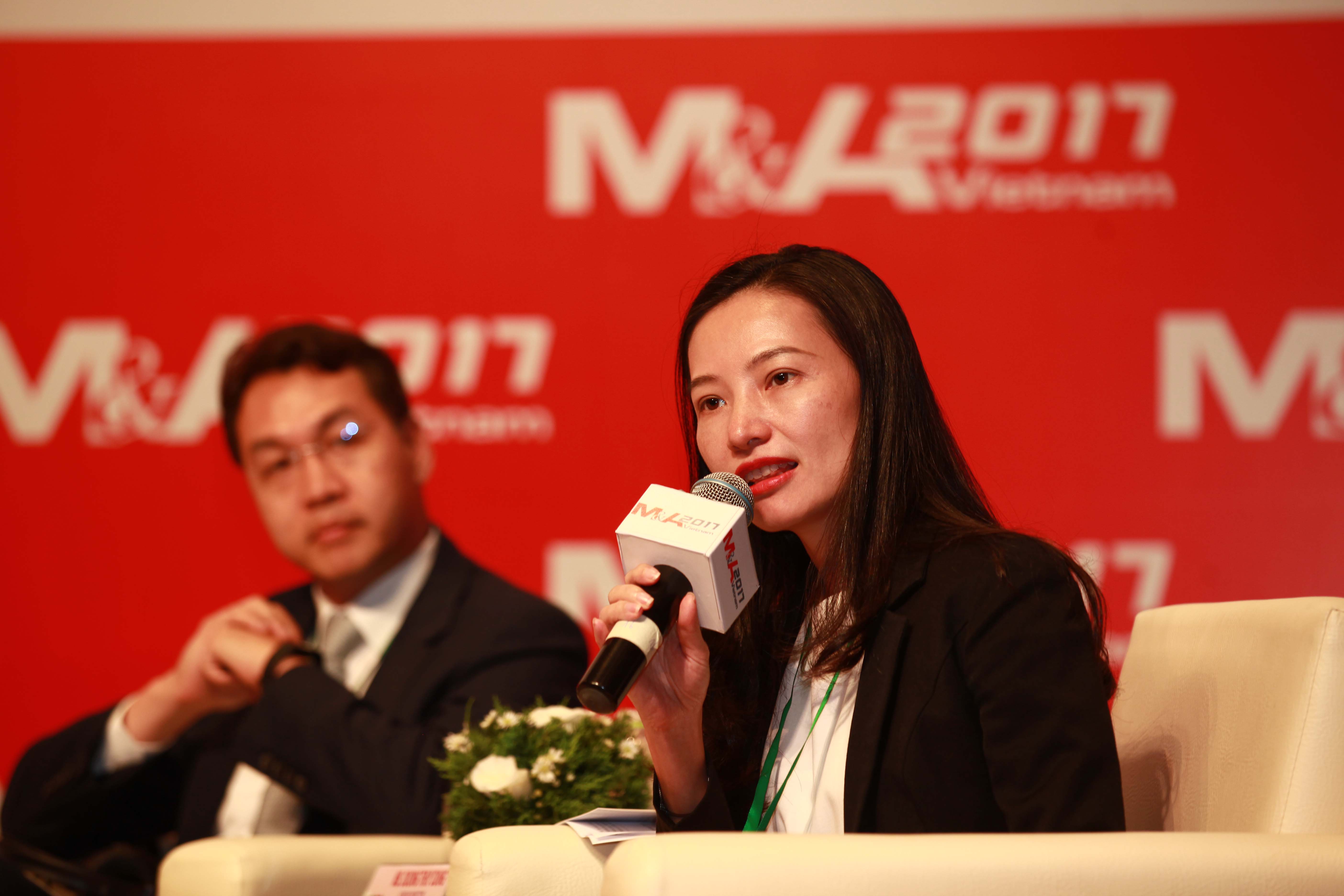 |
| Dung Duong - Senior director, head of Professional Services, CBRE Vietnam A lot of foreign investors in real estate may have little knowledge of the Vietnamese market, thus they prefer to partner up with Vietnamese firms. The two most popular methods are partnerships and co-investments, as you can see in recent deals in the property market. The main challenge is information transparency, which is really important for foreign investors. This does not only come from the firms themselves, but from the entire market in Vietnam. Some investors are confused about a lot of Vietnamese laws—for example, one land plot is up for permanent ownership, while the one next to it is only available for 50 years. Many investors have no idea what the reason behind this difference is, and they are discouraged from entering Vietnam. As a result, I believe that the legal framework needs to be more detailed to avoid confusions like these. |
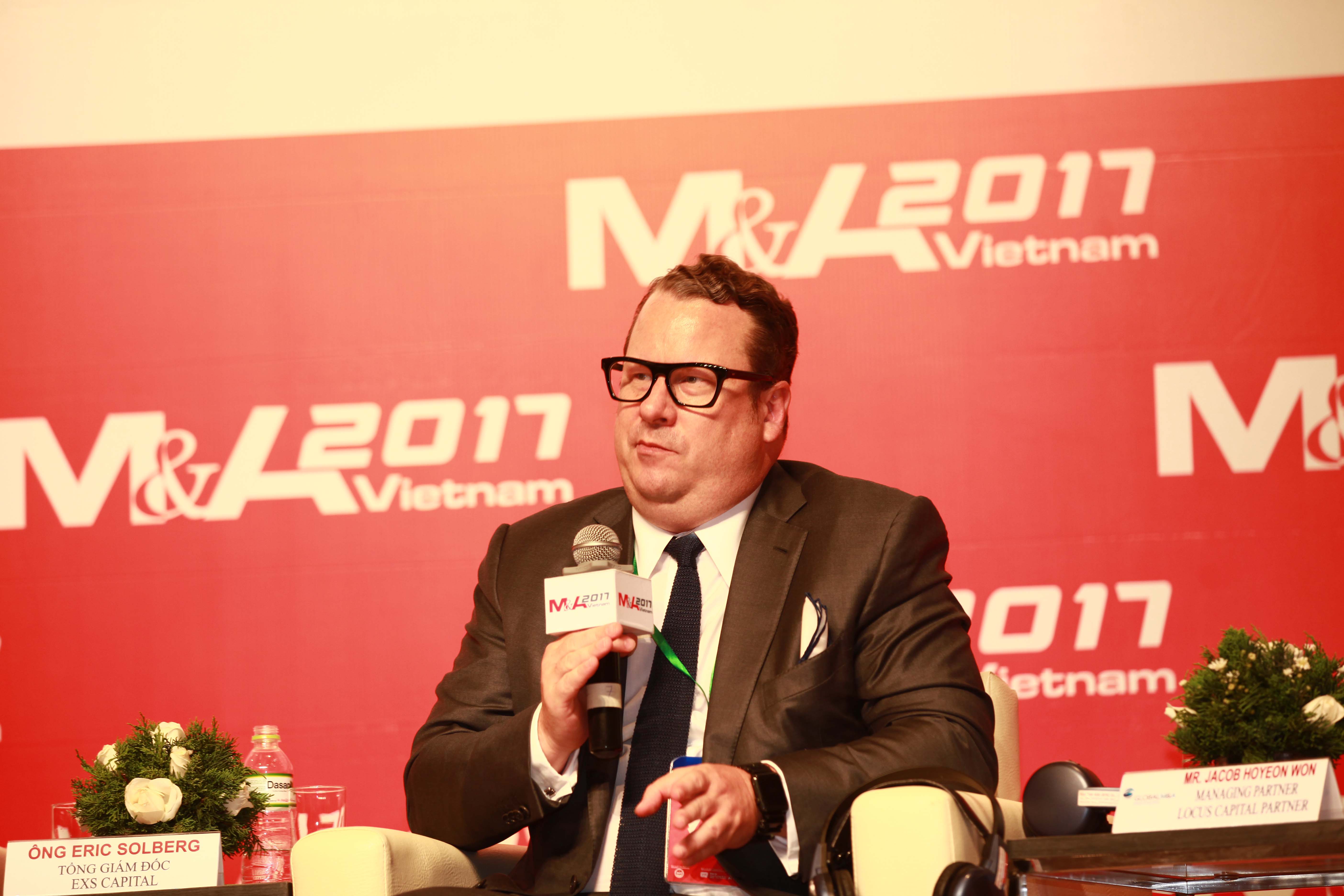 |
| Eric Solberg - CEO of EXS Capital We believe that the Vietnamese market, like other emerging markets, needs investment funds with 20 or 30 years of long-term capital in order to grow sustainably. The most important thing when deciding which company to invest in is whether we share the same vision. Since it is a long-term relationship, both partners need to trust each other and have great confidence in each other. Some foreign investors demand a lot and Vietnamese companies need to respond well to these demands. It all boils down to transparency, integrity, corporate governance, and management. EXS Capital looks to build a number of industry leaders, such as SonKim Land, and we also assist them to raise capital through various channels—bank credit, public offerings, and private placements. Another important thing for firms is to have talents to facilitate growth—that is something we cannot help with, so we look closely into this matter when investing in a company. Valuation is not always about price, it is about expectations and negotiations. A healthy partnership between two M&A partners is a complementary one with a shared vision. |
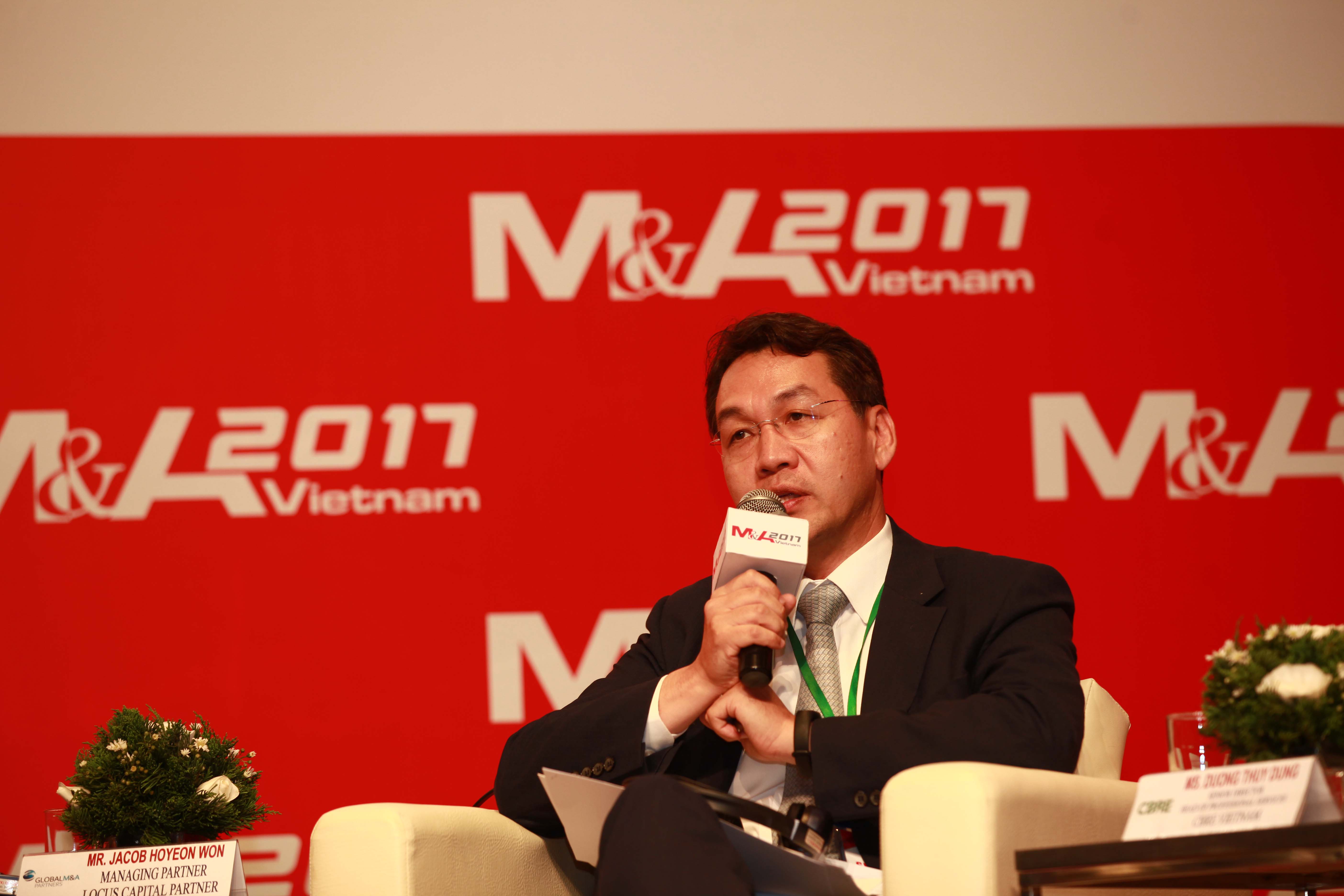 |
| Jacob Hoyeon Won - Managing Partner of Locus Capital Partner Many Korean investors are interested in doing M&A with Vietnam because the country is close to Korea and has a large population. Contrary to the fast-growing Vietnamese economy, Korea is maturing and growth is slowing down. Korean companies must look for growth elsewhere, and they have a lot of money to do so. Many clients of mine are mostly interested in Vietnam, even more than Indonesia. These clients tell me that many factories in Vietnam are really productive and they have strong confidence in the overall market. Vietnam has a stable geo-political climate, too. That said, it can be challenging for Korean investors to find the right target in Vietnam. Korean investors want majority control in a the company, and the firm must have good growth potential. In the past, Korea also offered a lot of M&A opportunities thanks to the wave of privatisation. I believe Vietnam will be the same. 2017 is a good year for Korean investors to come to Vietnam for long-term business deals. |
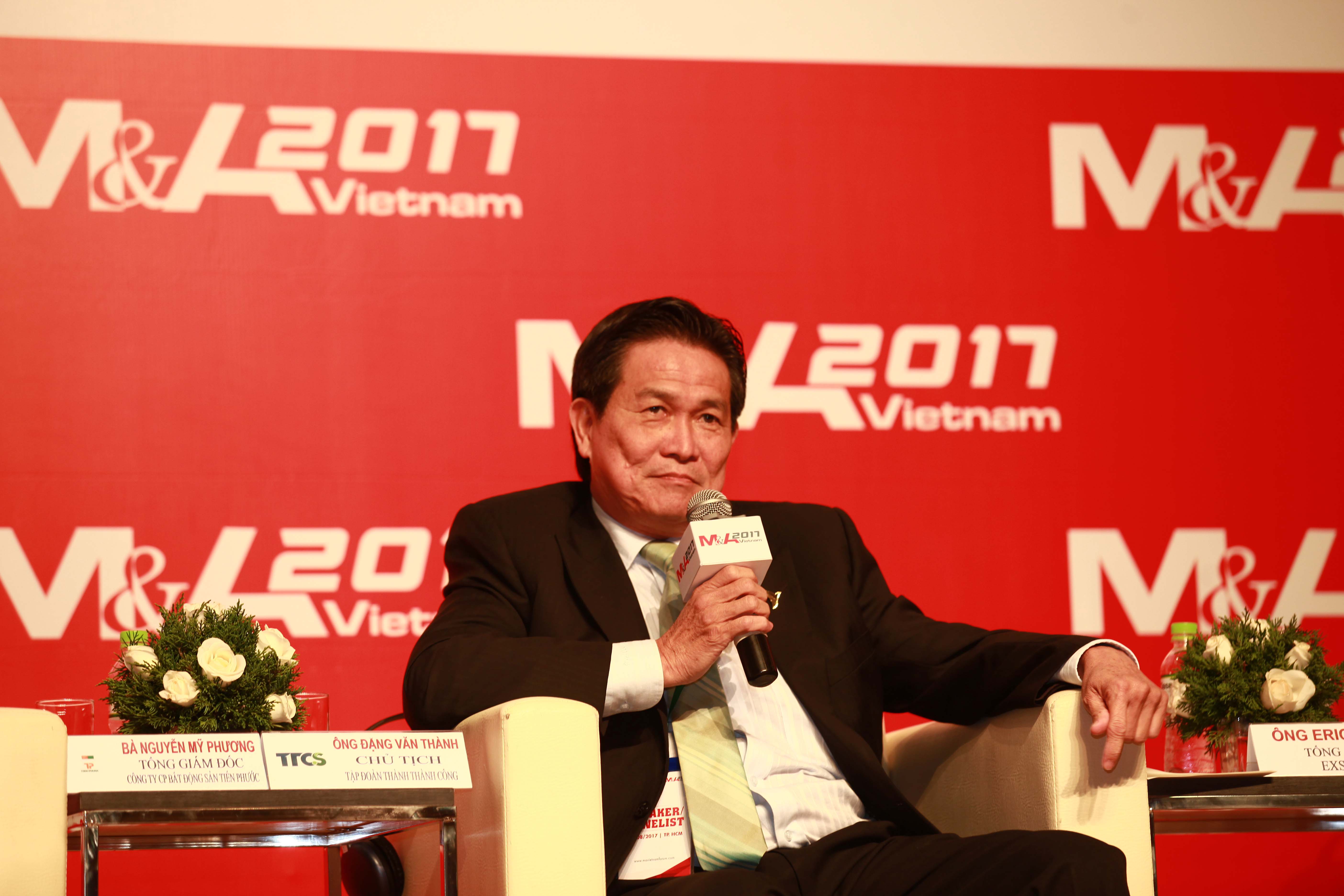 |
| Dang Van Thanh - Chairman of TTC Group M&A will be on the rise in several sectors, without being limited to just one or two. Thus, businessmen should be ready to avail themselves of opportunities in time. Young businessmen are responsible for creating added value for the society, customers, employees, and themselves. Meanwhile, purchasers are willing to acquire projects with a good price to gain market share. TTC is among the few companies to acquire foreign companies. Following M&A, companies should be flexible to operate the companies. A smooth transition might take two years. Cultural differences are one of the most challenging factors for successful M&A. When TCC acquired eight companies, we had to combine the cultures of these companies to create a synergy. |
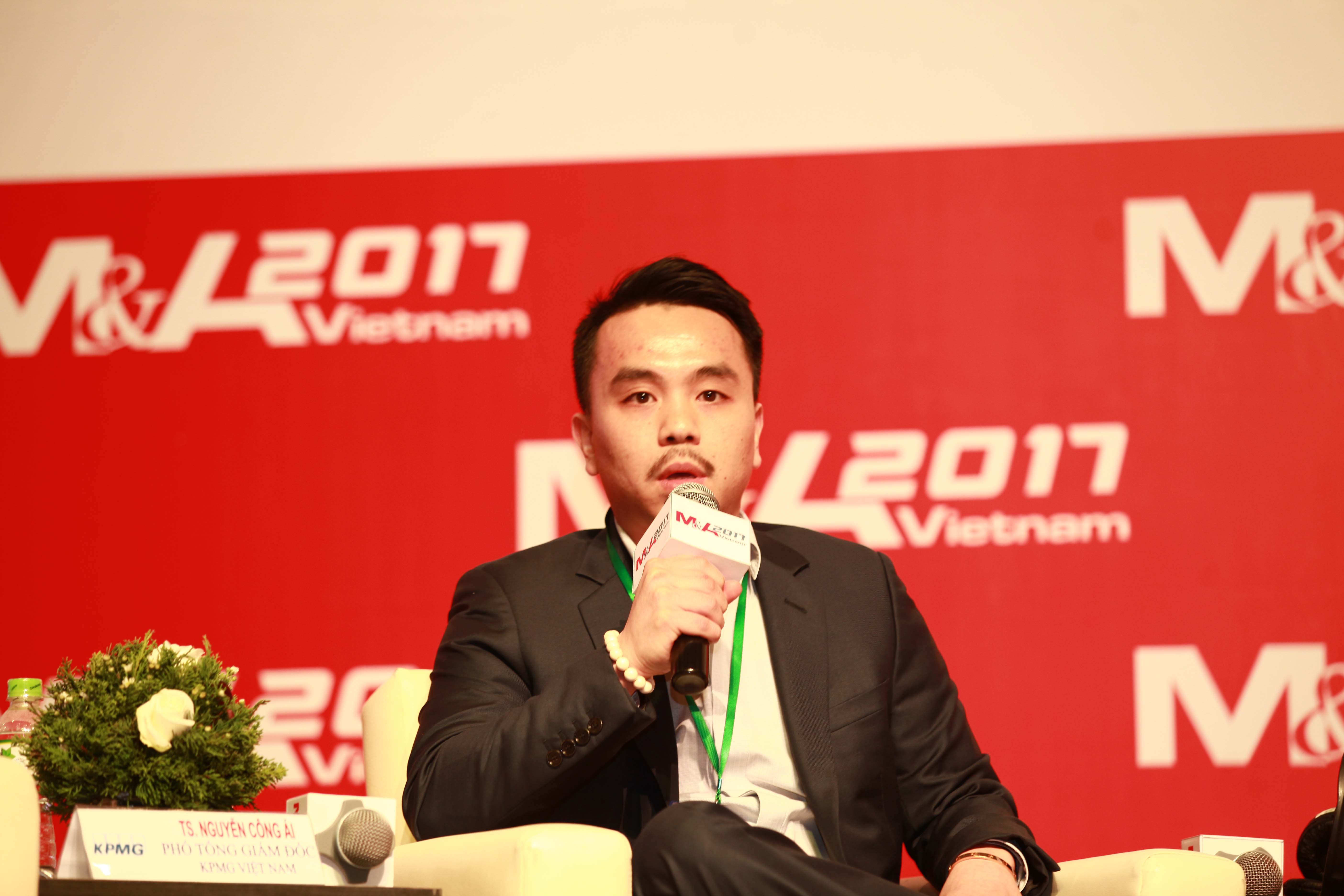 |
| Danny Le - Head of Business Development of Masan Group and vice chairman of Masan Nutri-Science It is hard to find long-term capital in Vietnam, so Masan tries to access foreign capital via M&A. We are looking for partners who can share our vision, strategy, and with whom we can synergise. As a seller, we are trying to create added value for buyers. We are also looking for strategic partners in line with our cycle of development. With regards to future trends, we see that Vietnam needs to create a lot of brands in agricultural sectors, like rice, coffee and meat, to attract investors. It is our strategy to create brands in the agricultural sector. In addition, around 15 per cent of Vietnamese people have bank accounts, so the potential for the digital economy is still ample. Thus, we expect acquirers can arm local business with advanced technology to boost their operations. |
What the stars mean:
★ Poor ★ ★ Promising ★★★ Good ★★★★ Very good ★★★★★ Exceptional
Latest News
More News
- Vietnamese businesses diversify amid global trade shifts (February 03, 2026 | 17:18)
- Consumer finance sector posts sharp profit growth (February 03, 2026 | 13:05)
- Vietnam and US to launch sixth trade negotiation round (January 30, 2026 | 15:19)
- NAB Innovation Centre underscores Vietnam’s appeal for tech investment (January 30, 2026 | 11:16)
- Vietnam moves towards market-based fuel management with E10 rollout (January 30, 2026 | 11:10)
- Vietnam startup funding enters a period of capital reset (January 30, 2026 | 11:06)
- Vietnam strengthens public debt management with World Bank and IMF (January 30, 2026 | 11:00)
- PM inspects APEC 2027 project progress in An Giang province (January 29, 2026 | 09:00)
- Vietnam among the world’s top 15 trading nations (January 28, 2026 | 17:12)
- Vietnam accelerates preparations for arbitration centre linked to new financial hub (January 28, 2026 | 17:09)
















 Mobile Version
Mobile Version